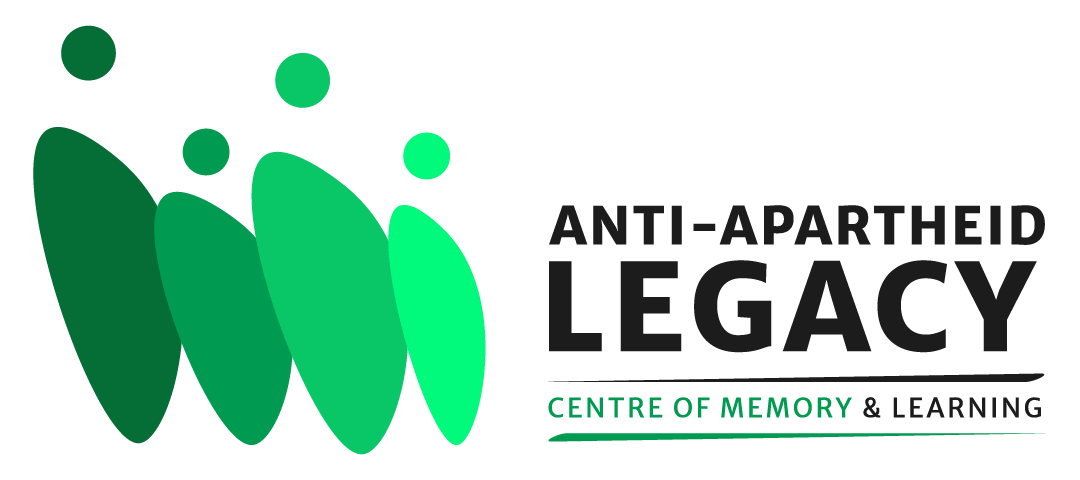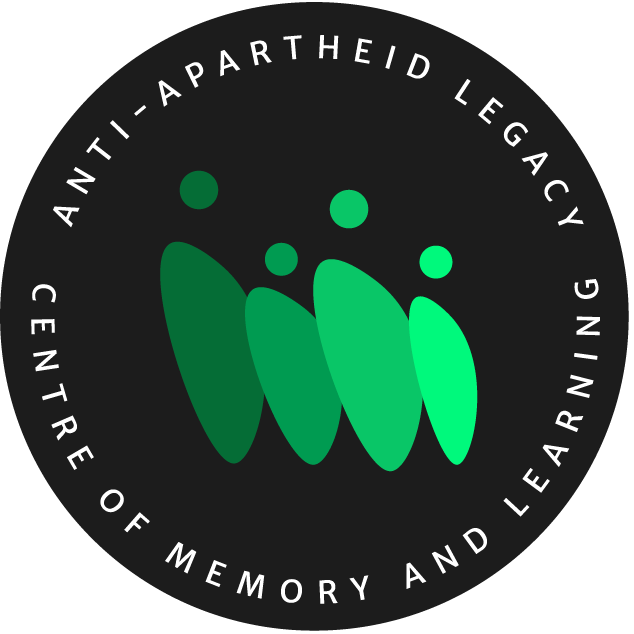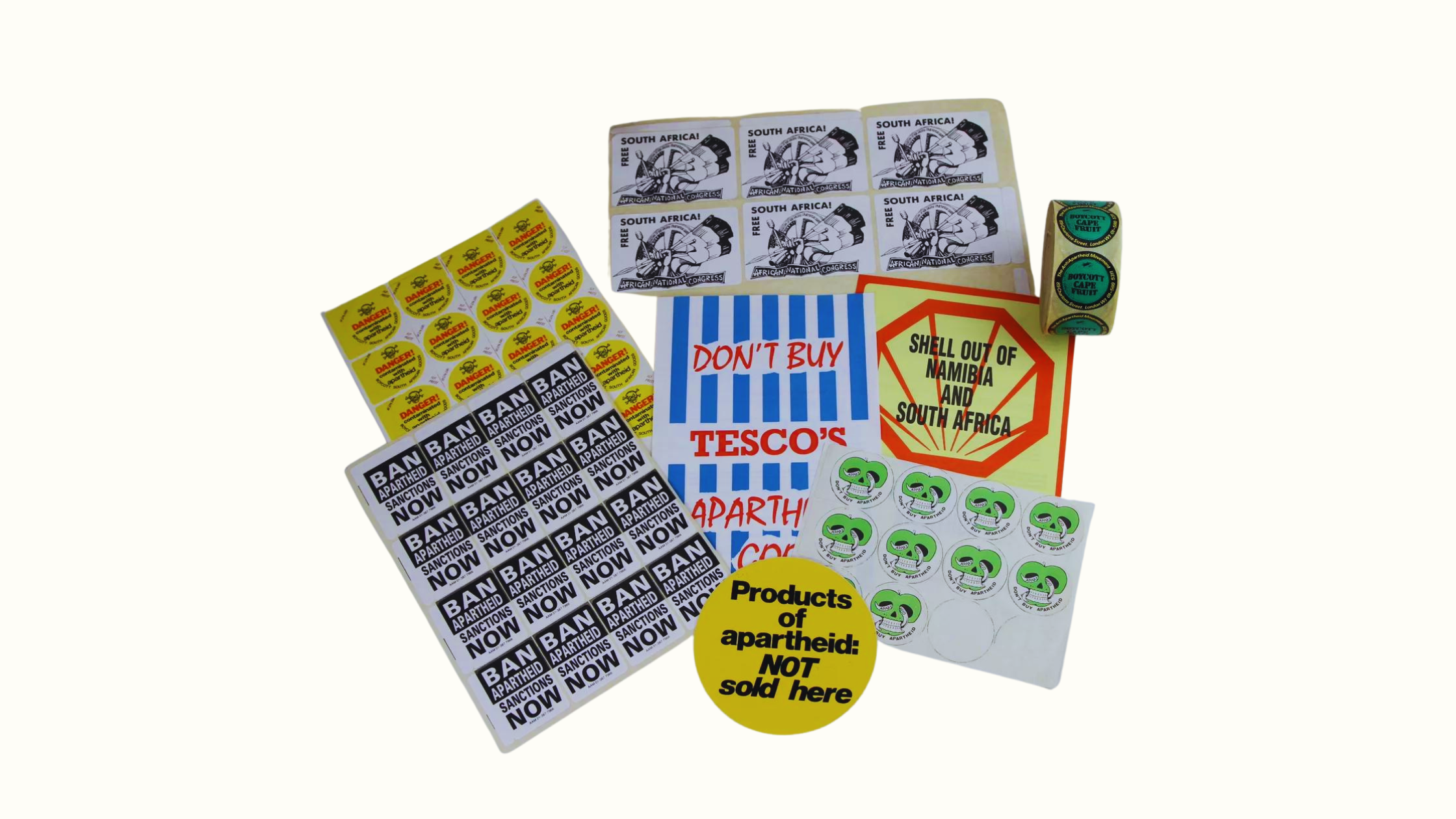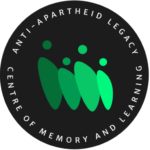The Liliesleaf Trust UK (TLTU) and partner London Metropolitan University’s Centre for Creative Arts, Cultures and Engagement (CREATURE) jointly appointed artist-researcher Dr Ekua McMorris to work on a project, “Anti-Apartheid Legacy: Material Culture, Heritage and Now”.
Focusing on material culture derived from the movement against apartheid and more specifically, the Anti-Apartheid Movement (AAM), “Anti-Apartheid Legacy: Material Culture, Heritage and Now” examines the ways in which objects and material artefacts unfold the legacy of AAM. New interpretations of AAM heritage and its contemporary relevance are illuminated through archival study, visual and oral histories, and documentation of commonplace artefacts that have been collected over the years from a range of people involved in the AAM in Britain.
The oral histories and photographed objects related to the AAM has been compiled onto Padlet, a digital and interactive platform. The ‘Anti-Apartheid Legacy Centre of Memory and Learning’ Padlet page allows visitors to the site to engage with the objects, listen to audio clips from oral history interviews, as well reading memories that have been activated by the participants engagement with some of the objects.
The interactive nature of this Padlet page which is available to anyone visiting the Anti-Apartheid Legacy Centre of Memory and Learning website, allows interested parties to engage with material objects and oral histories that are often kept behind closed doors in private collections or in archives that are not easily accessible to all.
The page has been structured in such a way as to make it easy to navigate and understand. People visiting the site will be able to closely examine the research material that may be considered as quotidian in its use and place in British society. However, when these commonplace objects are categorised into type, and viewed alongside unearthed memories, their value in relation to the AAM legacy and role some of the British people played begins to change.
This has involved exploring the collections of Christabel Gurney, activist, historian, and editor of Anti-Apartheid News between 1969 to 1980; Tom Bell, who was recruited to smuggle into South Africa bucket bombs (harmless devices) that exploded African National Congress-authored leaflets into the air; and the Trades Union Congress (TUC) Library Collection, part of London Metropolitan University’s Special Collections, which holds archival materials from the AAM. The latter has been made possible with the assistance of Jeff Howarth, Academic Liaison Librarian for TUC Library Collections.
Previously project curator of Sowing Roots at the Garden Museum in London, Dr McMorris said: “I have always been interested in archival objects, photographs, and oral histories. This important research project examines the history of what everyday objects, in this case, badges, posters, flyers, suitcases contain, when revisited through a contemporary lens. These objects tell a story through how cultural understanding is produced in the past and asks us to consider how these everyday objects and oral histories may produce new understandings legacy of the anti-apartheid movement.”

Dr Ekua Mc Morris sets out her personal reference point for this project below:
As a researcher and visual artist my practice explores the politics of race, and memory using objects and photographs to interrogate and understand important historical events.
On the 27th of October 2022, I had the opportunity to visit and access the Anti-Apartheid Movement collection at the Bodleian in Oxford. Unbeknown to me, I had requested restricted archival material. It was only when I have arrived at the Weston Library reading room that it dawned on me that the photographs, I had ordered would be extremely painful and harrowing to view. Yet what I witnessed brought home the horror and reality of the Apartheid regime, something which the everyday objects that I had been researching did not reveal. As a witness of one of history’s most painful events several decades later, the importance of this project was made clear.
“I was brought up knowing up in the 1980s and my mother made sure that all her children were fully aware of the Apartheid regime. The rule in our house was that under no circumstance where we allowed to buy or bring home any form of produce from South Africa. When the film Cry Freedom (1987) was released, my mother brought a group of young Black people to watch it in Leicester Square. As children we attended Anti-Apartheid Movement rallies and discussions about South Africa and the oppression of the African people was not kept from us. However, it was not until I viewed images of mass graves, and photographs taken moments after a young person had been shot in the head by the police that I had to pause and really consider the purpose of this project and more importantly, what the history of Apartheid represented in the context of Britain and its complicit-ness in the Apartheid regime.”

Suitcase with a false bottom used by London Recruit Tom Bell to smuggle illegal material into South Africa during the 1970’s (Image by Dr. Ekua McMorris).
Dr McMorris’s research paper on the project’s process and findings can be accessed here. Her research was presented in a related seminar ‘Archives: Material Culture and Participation’, held by CREATURE in collaboration with TLTU, on 15th March 2023.
A recording of this seminar may be viewed here.
Written by Caroline Kamana, Director, January 2023



